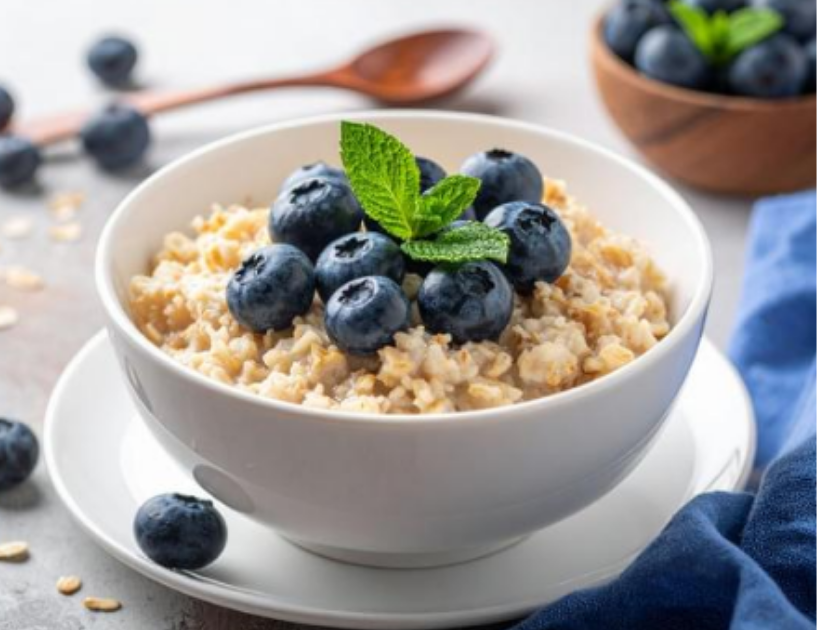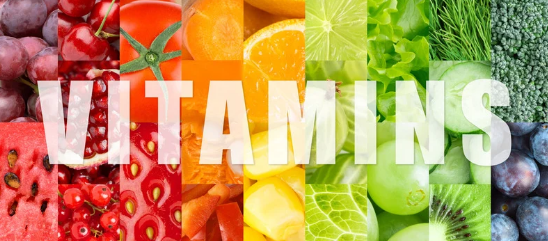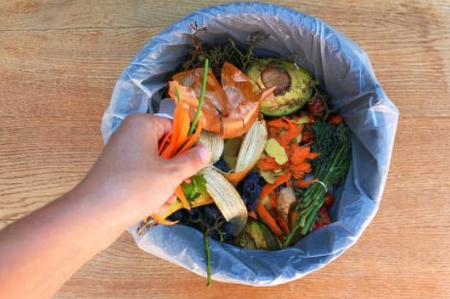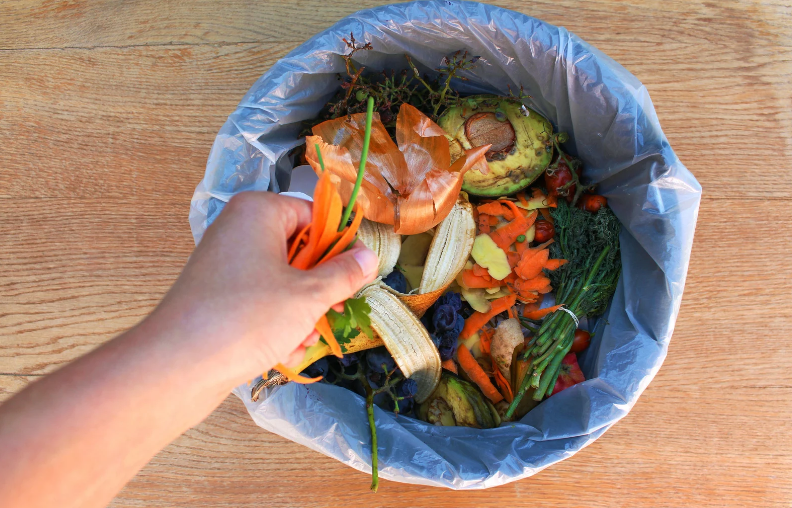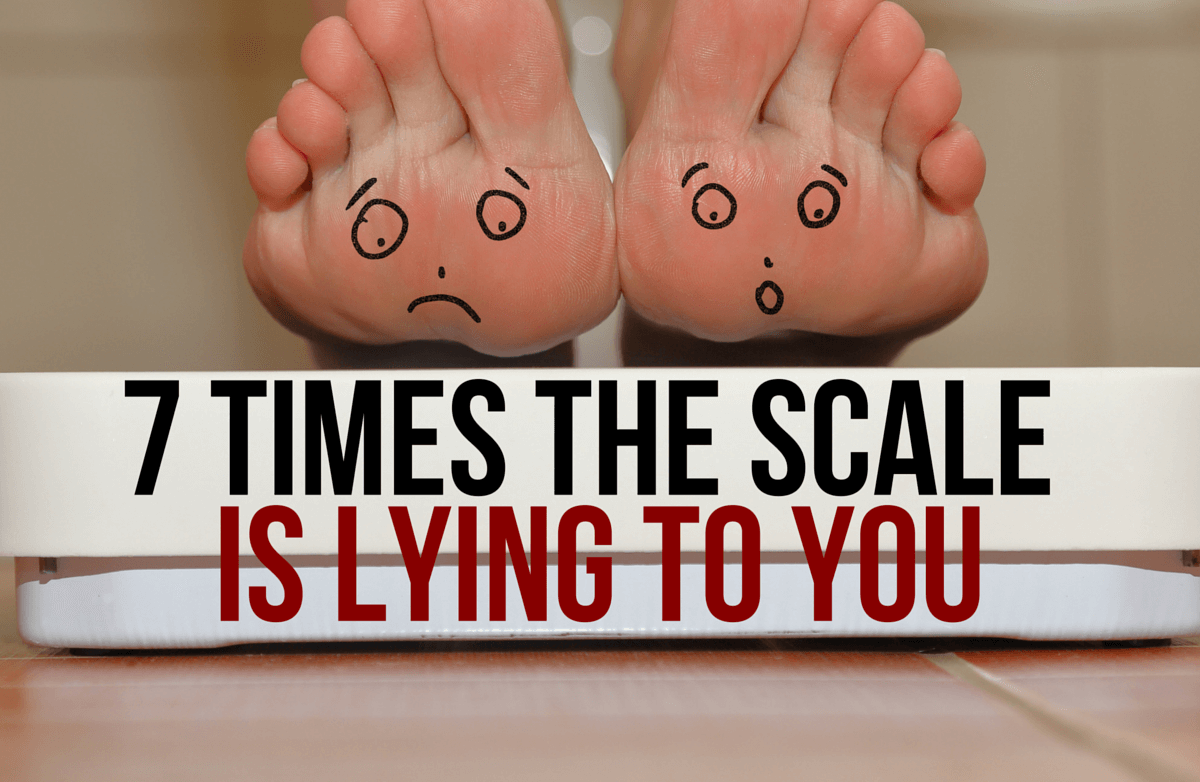The good news is, there are ways to overcome the tendency to overeat, such as planning ahead and being mindful. Understanding the "why" behind overeating is an important step in ending the cycle. These eight facts explained by two experts in the field will get you on track to becoming the best version of you.
1. Overeating Is Often Used as A Coping Mechanism
In her book "Free Your Child from Overeating," Michelle Maidenberg, PhD, MPH, clinical director of Westchester Group Works in Harrison, New York, explains that overeating can be used as a coping mechanism to deal with overwhelming emotions, including sadness, frustration, joy and more. According to Maidenberg, this can be because food is easily accessible and reliable, and when you're feeling such emotions, it's simple to grab for the nearest snack.
"Emotional eating can be influenced by both positive and negative emotions," Maidenberg explains. "Feelings can affect an individual's motivation to eat, their food choices, where and with whom they eat, and how quickly they eat a meal. This can be conscious or unconscious behavior."
She says the emotions behind why people overeat can be explained by the acronym HALT: Happy, Angry/Anxious, Lonely or Tired.
"Other common reasons why adults and kids eat are boredom and/or frustration," Maidenberg says. "Comfort foods are often consumed to soothe a bad mood (loneliness) or to stay in a good mood (when celebrating). Typical comfort foods include ice cream, chocolate, pizza, chips, steak and peanut butter."
Because of this psychological component behind overeating, it's important to pay close attention to your feelings if you want to conquer the urge, Maidenberg says. In her book, she recommends staying in tune with your feelings and thought patterns.
2. Snacking (And Overeating) Can Be Addictive
Snackers beware—munching on your favorite sweet, salty or crunchy foods can be addictive. Why? According to Maidenberg, the act of snacking is pleasurable to your senses. It stimulates the brain's reward centers through the neurotransmitter dopamine, and releases opioids in the brain, sending signals that it needs more. To put it into context, Maidenberg says this pattern is similar to how the body responds to addictive drugs.
"We can't help but want more," Maidenberg says. "Our body is just naturally reacting. Planning ahead is the best strategy to combat over-snacking."
She recommends focusing on portion control by creating your own snack packs with snack-size, resealable bags in advance of leaving the house.
3. Classifying Foods as "Good" Or "Bad" Can Result In Overeating
Elizabeth Babcock, a licensed clinical social worker and founder of Babcock Counseling & Therapy Services in Canonsburg, Pennsylvania, discussed this notion in her book, "Why We Overeat and How To Stop": If you're one to classify foods as "good" and "bad," you might very well be triggering yourself to overeat.
"Distilling it to emotionally-loaded and inaccurate terms like 'good' and 'bad' has actually left many of us feeing defiantly resistant to nutritious foods, and longing for the very foods that usually leave us feeling miserable in the end. It's an oddly backwards pattern of thought," Babcock explains.
Maidenberg agrees, recommending, "Avoid saying there are 'good' and 'bad' foods and I am 'good' or 'bad' if I eat or overeat those foods."
Maidenberg also suggests avoiding the term "clean eating." "What is the opposite, dirty eating? That is polarized thinking, and inevitably leads to feelings of guilt and shame and being judgmental of yourself."
Babcock explains that instead of placing these "value judgments" on foods, you should instead give foods descriptions. If a food is something you deem as healthy, for example, you might speak of it as something that makes your body stronger or makes you feel better physically and emotionally.
4. Avoiding Overeating Can Mean a Lower BMI
On the flip side of overeating and indulging comes the act of mindful eating, or intuitive eating. The idea here is that you're mindfully assessing when and what you're consuming before actually doing so. By acing intuitive eating, you could be doing great things for your body. For one, according to Maidenberg, more than 25 studies show those who are mindful about what and when they eat have a lower body mass index. Such studies have also found that these individuals who practice intuitive eating also have fewer eating disorders and better cholesterol levels, among other benefits.
How does one become an intuitive eater? "The objective is to teach skills so that adults and kids learn to make good, balanced decisions about their eating behavior independently, intuitively and mindfully," Maidenberg explains. "We all become distracted when we eat. With distractions, we often don't recognize how much food we're consuming, [and] because of this, we end up eating mindlessly."
According to Maidenberg, some mindful ways to focus on the food you're eating include eating slowly, taking time to appreciate every bite and being aware of all tastes, aromas, textures and consistencies; eating in a setting that enhances concentration and focus on food, such as a quiet, stress-free area; being aware of and eliminating distractions, including TV, computers, phones and the like; sitting down when eating; and being in tune to serving sizes of both meals and snacks.
5. Properly Guiding Your Thoughts Can Prevent Overeating
According to Babcock's book, in addition to the "good" foods versus "bad" foods notion, the way in which you talk to yourself about food options and think about foods in general can make a difference in the choices you end up making. Maidenberg agrees that your thoughts can be a major component associated with overeating.
"We have many sabotaging thoughts that help us rationalize why we do what we do, such as 'It's just a little piece,' 'I'll make up for it later,' 'I'll never be good at this,' 'I want it,' 'It's a special occasion,' etc.," Maidenberg says.
The important thing to remember is that thoughts are not facts, Maidenberg adds, and they can be overcome.
"Identify what your thoughts are and note which ones are most prevalent and how you weave back and forth between them," she suggests. "Respond to them instead of giving into them."
Babcock recommends remaining mentally focused on your health and wellness goals and on the life you want to lead. Over time, it will become second nature to make smart food choices.
6. Friends and Family Can Unintentionally Contribute to Overeating
Ever had one of those evenings when you're hanging out and eating dinner with friends and family and suddenly realize you're too full to even move? Many times, friends and family can unintentionally give you food pressure, triggering a reaction to indulge, according to Babcock. In fact, it's not only common for family and friends to do this, but it's actually the norm. This pressure can result not only in overeating, but also in feelings of shame and regret.
"The best defense is to practice more assertiveness," Babcock says. "Mentally rehearse deflecting such pressure so that you're more prepared to do it when the time comes. I recommend saying something like, 'It was wonderful. I'm quite satisfied and just couldn't enjoy another bite,' because few people will press on and try to get you to do something you've specifically defined as impossible to enjoy."
However you choose to respond, Babcock says, be prepared to use what she refers to as the "broken record technique." This means repeating your answer each time it's challenged.
"Do it enough times, and they'll eventually give up, but they might make you work for it," Babcock says. "If all else fails, you could perhaps leave the table early to start helping with kitchen cleanup or some other activity of benefit to the group. Again, it doesn't mean they won't still try, but it puts you in a stronger position to maintain your boundaries."
7. Stress Can Lead to Overeating and Overeating Can Lead to Stress
Those who have a tendency to overeat are often triggered to do so because of stress, as they rely on food to self-soothe, according to Babcock's book. On the other side of the coin, overeating can lead to stress, as after compulsively eating the stress and anxiety will increase and eventually become accompanied by feelings of guilt, shame and remorse.
"The more stressed you are, the more intensely you will crave emotional relief and the less discriminating you will become about how you achieve it." Babcock says. "It will become increasingly difficult to think creatively about options that are safer—and ultimately more satisfying—than overeating."
The key to success here, according to Babcock, is setting up a lifestyle that results in minimal stress. Naturally, your work and/or personal life might have aspects that are stress-inducing, but finding ways to combat stress without food will make you feel better about yourself and your goals in the long run.
8. Overeating Can Result in Other Consequences
Beyond the negative consequences we've already discussed—like feelings of stress, remorse and the like—overeating can result in various other consequences, such as weight gain and a decrease in confidence, Babcock's book explains.
Babcock says that a good way to avoid overeating and its subsequent consequences is to avoid trigger situations as much as possible. "We tire quickly when we have to work hard at self-control with food, so we need to try to avoid circumstances that require it."
She also recommends planning ahead so you can keep yourself happily and healthfully fed. Finally, Babcock recommends building a moderate level of physical activity into your daily life, choosing activities you enjoy so that it doesn't feel so much like work when you're actually doing them.
Maidenberg adds that committing to the right mindset and actions associated with food is vital. "Consistency is key," she reiterates. "Anything we want to excel in, we need to put in time, effort and personal dedication."
For added support, Maidenberg suggests soliciting the support of friends, family or a support group of like-minded people.
By being knowledgeable on these facts about overeating and practicing ways to control it, you can begin to fight the urge and lead the healthiest lifestyle possible.



